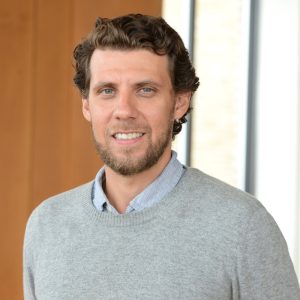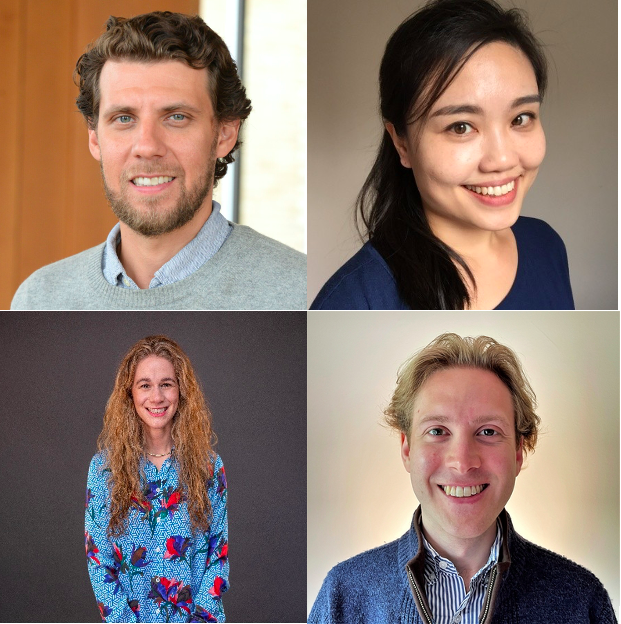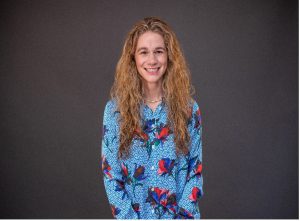We are privileged to welcome four new faculty members this semester. Each of these are leaders in their respective fields and dynamic researchers and educators. Please visit their faculty profiles for their full bios.
Assistant Professor Philip Kreniske, Department of Community Health and Social Sciences

Dr. Kreniske joins us from Columbia University where he was assistant professor of psychiatry. He earned his PhD in psychology from the CUNY Graduate Center and a Master of Science in education from Lehman College. In 2020 he completed a T32 postdoctoral fellowship at the HIV Center for Clinical and Behavioral Studies at Columbia University. Currently, as the principal investigator of two National Institute of Mental Health (NIMH) grants, Dr. Kreniske uses implementation science to study adolescent health, focusing on technology and inequity in the United States and sub-Saharan Africa.
Dr. Kreniske is committed to engaging students in dynamic teaching and research. His scholarship focuses on digital technology, including Health Informatics, to reduce health inequities in the United States and globally.
Assistant Professor Sehyun Oh, Department of Epidemiology and Biostatistics

Dr. Sehyun Oh joins us as assistant professor after serving as research assistant professor at CUNY SPH since December 2022, and previously as a postdoctoral researcher at Professor Levi Waldron’s lab since 2017. She holds a PhD in biochemistry and molecular biology from the University of Minnesota and studied DNA repair and telomere maintenance mechanisms during her postdoctoral research.
Since joining CUNY SPH, Dr. Oh has worked on many research projects, including cloud computing through the National Human Genome Research Institute (NHGRI) Analysis Visualization and Informatics Lab-space (AnVIL) project, software development for the identification and correction of invalid gene symbols, ovarian cancer subtyping through copy number variation analysis and developing a novel method on public database search and transfer learning.
She is currently leading a new project as a co-PI of an NIH-funded grant to construct an omics data repository designed to easily apply artificial intelligence and machine learning tools. Her over-arching career goal is to facilitate interdisciplinary research by developing intuitive informatics infrastructure and user-friendly tools to lower barriers across different disciplines and resources.
Assistant Professor Rachael Piltch-Loeb, Department of Environmental, Occupational and Geospatial Health Sciences
Dr. Piltch-Loeb is a public health expert specialized in research, measurement and evaluation of public health emergency systems. She joins us from the Harvard T. H. Chan School of Public Health where she was a research scientist and project director with the Emergency Preparedness Research Evaluation and Practice Program (EPREP). She holds a PhD in public health from New York University and a Master of Science in public health from the Bloomberg School of Public Health at Johns Hopkins University.
Dr. Piltch-Loeb has focused her work on a broad range of public health crises especially those related to climate change such as infectious pathogens and natural disasters, as well as environmental hazards and manmade disasters. She has served on committees established by the National Academies of Science and Medicine as well as the World Health Organization and European Centers for Disease Control. She is co-founder of the IRIS Academic Coalition, a research group dedicated to understanding infodemics and promoting healthy information ecosystems and a contributor to Dear Pandemic, a female-led science communication platform that emerged during the pandemic.
Assistant Professor Nash Rochman, Department of Epidemiology and Biostatistics

Dr. Nash Rochman joins us from the National Institutes of Health (NIH) where he was a principal investigator. He holds a PhD in computational biology from Johns Hopkins University, where he employed a mix of experimental, computational and theoretical approaches to further our fundamental understanding of the mechanisms by which cells translate continuum-scale mechanical cues, like changes to volume and pressure, into discrete molecular signals.
Over the course of a postdoctoral fellowship in evolutionary genomics at the NIH, Nash developed a novel methodology for the parallelizable construction of very large-scale phylogenies and ancestral state reconstructions. He used these techniques to provide early evidence of positive selection across multiple sites within the SARS-CoV-2 genome revealing a high rate of antigenic diversification and predicting the distribution of variant-specific vaccines. Having received the NIH’s prestigious Independent Research Scholar Award in 2021, Nash continues to study conserved trends in viral evolution.
“We are honored to welcome such an outstanding group of new professors to our school,” says Dean Ayman El-Mohandes. “With such talent on board, the 2023-24 school year promises to be a great one.”





